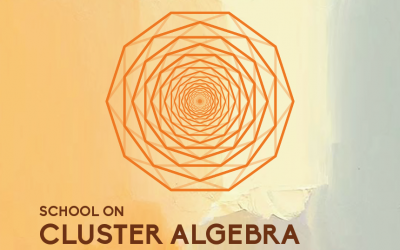In 2000, S. Fomin and A. Zelevinsky introduced Cluster Algebras as abstractions of a combinatoro-algebraic phenomenon that is found in many different areas throughout mathematics. Defined as a sub-algebra of the ambient field of rational functions in finitely many variables, it is generated by union of cluster variables. The cluster variables are distributed across clusters. The clusters arise from an original "seed'' by a process known as mutation. For example, given a regular polygon with n sides the triangulations of this polygon with non-crossing diagonals can be obtained from a given triangulation of this type by a sequence of diagonal flips. Combinatorial data at a given cluster may be defined in terms of a quiver or alternatively a skew-symmetric matrix and using this quiver or matrix, the other clusters may be obtained by mutations. The clusters can be visualized as a graph with vertices being the clusters and edges being the mutations.
As it turns out the coordinate rings of Grassmannians, Shubert varieties and homogenous spaces are cluster algebras. The initial motivation behind study of these algebras was to provide an algebraic and combinatorial framework for Lusztig's work on canonical bases but now it has gone far beyond that initial motivation. Cluster algebras now have connections to string theory, Poisson geometry, algebraic geometry, combinatorics, representation theory and Teichmuller theory, quantum groups, and quiver representations.
The aim of this program is to bring together experts and interested students and researchers in this area. There will be lectures and talks by the experts on various topics around the central theme of cluster algebras and their applications. The hope is that participants will benefit from this program both by gaining insight into a key theme pervading and unifying several important fields and by applying the new methods to their research.
We will be looking for applications from young researchers, post-doctoral researchers, bright masters and PhD students and few also a limited number of under grad students.
 icts
icts res
res in
in

